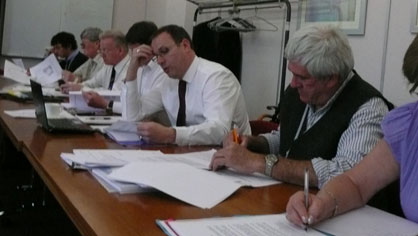27 April 2009
A strong NFFO delegation recently attended a North Sea RAC meeting in Edinburgh which has been tasked to progress work on a long term management plan for the North Sea nephrops fishery.
This is pioneering work as the type of management plan envisaged by the RAC bears little relation to the set of harvest control rules, imposed from above, that currently pass for a management plan.
Based on lessons derived from important preparatory meetings over the last two years, which outlined a range of ground-rules on how to develop LTMPs, the RAC meeting will focus on economic viability of the fleet and environmental sustainability, as well as maintaining the nephrops fishery close to maximum sustainable yield.
Every fishery has its peculiarities and undoubtedly the problems faced by the nephrops fleet include the difficulty in assessing a stock where it is not easy to estimate the age of the animals and where the prawns live in single or muliti-occupancy burrows. The different sub-stocks and their vulnerability to different exploitation rates is another complexity. Helping to strengthen the assessments will undoubtedly be part of the management plan.
The aim of these initial series of meetings is to prepare a discussion document that will describe the current state of the fishery, where we would like the fishery to be in say 10 years time and a series of options for getting there. These options will then be thoroughly discussed with the vessel operators in the nephrops fishery before final advice on a definitive long term management plan for nephrops in the North Sea is agreed. The more comprehensive and robust the management plan is the greater will be the prospect of its adoption by the EC rather than the “management plan imposed from above” or crisis management that has characterised the North Sea demersal fisheries for the last 15 years.
This work is pioneering in another sense in that it provides a unique opportunity for a collaborative approach where the industry, scientists, fisheries economists can cooperate in the design and implementation of a plan. One of the central principles of the approach will be to avoid a plan that is imposed from outside in favour of one where successful implementation is achieved by ensuring that the fishing industry has been centrally involved in its design, aims and ways of achieving them.

